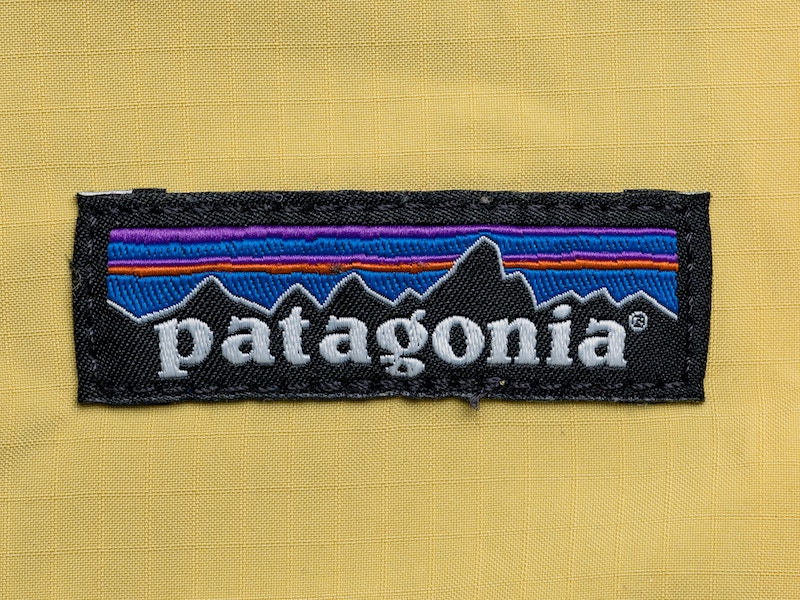Patagonia highlights an inconvenient truth at the heart of a shift towards sustainability
A jacket will set you back £300. A fleece can be as much as £210. One of their distinctive T-shirts, £75. While expensive, one of Patagonia’s core values is quality — they design clothing that’s meant to last. The idea revolves around the minimalist ethos of paying more, buying less, and wearing the same clothing over and over again. Environmentalism is key to their approach, and Earth is their one and only shareholder. Patagonia’s approach is undeniably well intended, but is its ethos as sustainable as it appears to be? Because the thing about those high prices is that they’re unaffordable to most. If only those on high incomes can afford to buy into the brand, then what may appear sustainable is, in fact, more indicative of an inconvenient truth about moving to a sustainable society.
Contrary to prevailing beliefs, we’re not facing a climate crisis, we’re facing an ecological and social crisis. The two are inextricably interconnected. You wouldn’t know it, though, because the Western framing of ‘the crisis’ focuses solely on global warming. That’s why most companies and governments are lasering in on net zero as the solution to the crisis. But a large piece of the jigsaw that often gets overlooked is that we can’t have a sustainable society if each person’s needs aren’t being met.
Rampant inequality means plenty of those living in developed countries can’t afford to buy Patagonia’s clothing. Take the 13.4 per cent of households in the UK (3.8 million) who can’t afford to keep their homes warm in winter. Or the fact that in the European Union, nearly nine per cent of people in employment are at risk of poverty. This helps explain why 1.5 million Germans are supported by food banks. In America, 40 per cent of respondents to a 2019 Gallup poll said they are either running into debt or barely making ends meet. An estimated 12 million Americans use high-interest payday loans. 70 per cent of people who get these loans use them to pay for basic expenses like rent and utilities.
If large sections of society can never afford to buy quality products designed to last, then can we ever reach a point where we start to consume sustainably? In other words, can quality be affordable for those on low incomes? Some may argue if the poor spent more on less, it would balance out. The issue is people on low incomes only have a certain amount of disposable income at any point, it’s no good having to save for months on end to afford that expensive piece of clothing if you need a new t-shirt tomorrow. The issue gets to the heart of what sustainable or ‘green’ consumption looks like. Sure, people must consume less, but if quality goods and services can’t be made at affordable prices, then it’s unclear what a more sustainable form of consumption looks like.
Inequality in developed countries is just the tip of the iceberg. Together, in the emerging economies of Brazil, China, India, Indonesia, Mexico, Russia, South Africa and Turkey, over 2.3 billion people (or over 65 per cent of their population) live on less than $5 a day. Meanwhile, in 2015, 700 million people lived in extreme poverty (defined as someone earning below $1.90 each day). Extreme levels of poverty explain why while we produce enough food to feed ten billion people, 850 million people don’t have enough to eat. Oxfam estimates 11 people die from hunger every minute. 770 million people still don’t have access to electricity. One in three people don’t have access to clean water. To neglect those suffering in poverty and focus efforts solely on environmental aspects of sustainability is morally abhorrent.
The thing is, the framing of the crisis from a Western perspective is kind of understandable. The focus of efforts to move to a sustainable society revolves around reducing the environmental impacts of high living standards. Hence why companies like Patagonia are solely focused on environmental concerns. People who can afford to buy their products don’t care about poverty, they care about changing environmental conditions as they will directly be impacted by them. This inconvenient truth gets to the heart of the problem about sustainability; what does a sustainable company actually look like? Well, consider that every company exists to produce goods and services within the framework of an economy. As such, every company must conform to certain rules to be successful. It’s these rules, rules that revolve around economic growth, the profit motive, and consumerism, that lead to increasing environmental impacts.
What we need is a sustainable society where human needs are met within environmental limits. What we have is a total lack of acknowledgement of the need to question the beliefs and rules of the games in order to redesign society around sustainable principles. Without questioning those rules, rampant inequality will remain a fabric of society. And so we’re left with some weird aberration, where companies that appear to be at the forefront of sustainability, really aren’t.
The actual question we need to ask is — how do we go from where we are, which is an economic system which is unsustainable by design, to where we need to be, which is a system that provides for each person’s needs within limits? What’s clear is that without questioning the causes of environmental impacts, we will remain entrenched on a path that’s leading to a terrible future. So no matter how well-intentioned Patagonia or any other sustainable brand appears to be, they are still an outcome of a system that is unsustainable by design. But the current state of affairs works well for companies like Patagonia, who can make the most of their green credentials by charging premium prices that are unaffordable to most. Their appearance as the essence of sustainability is nothing other than a unique selling point that enhances their brand. Until we redesign the economy around sustainable principles, every company will remain a product of the problem. Companies like Patagonia are no different.



